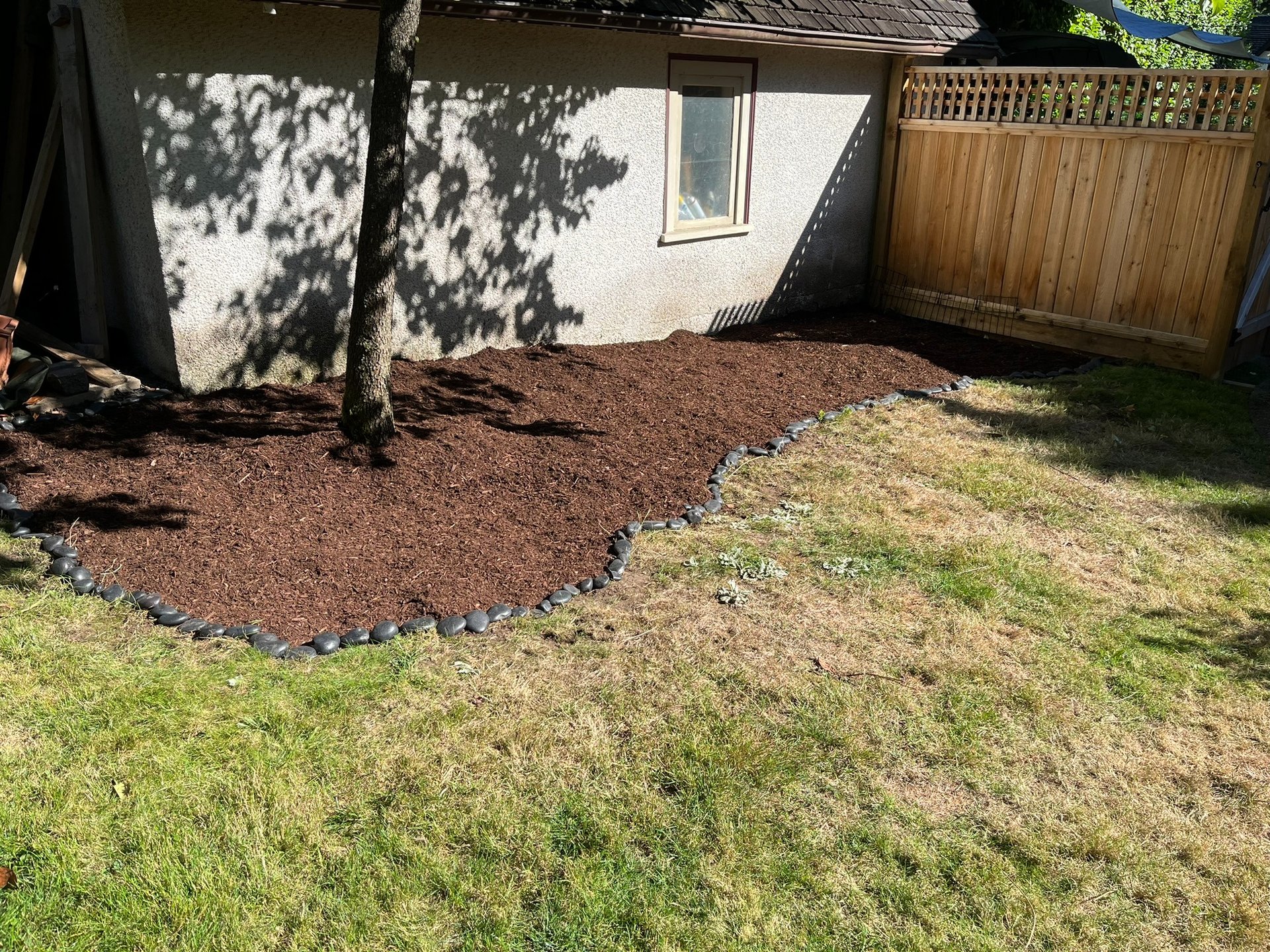
Managing Garden Pests During Vancouver Cleanups: A Professional Guide to Year-Round Control
Discover expert strategies for controlling common Vancouver garden pests during seasonal cleanups. Learn local solutions for year-round pest management in Vancouver's unique climate.
2/8/20256 min read
As a professional landscaper with over 15 years of experience in Vancouver's diverse gardens, I've encountered virtually every pest problem imaginable in our unique coastal climate. From dealing with European chafer beetles in Point Grey to managing slugs in North Vancouver's rainy neighborhoods, I've learned that successful pest management during garden cleanups requires a deep understanding of our local ecosystem and seasonal patterns.
Understanding Vancouver's Pest Challenges
Vancouver's mild, wet climate creates perfect conditions for various garden pests to thrive year-round. Unlike other Canadian cities that experience harsh winters that naturally control pest populations, our moderate temperatures mean we need to be especially vigilant during garden cleanups. According to the UBC Botanical Garden, our coastal climate supports over 40 common garden pest species that can damage local plants and gardens.
The Seasonal Pest Calendar in Vancouver
Winter Cleanup (December-February)
During Vancouver's wet winters, while many pests are less active, this is actually the crucial time to prevent spring infestations. Our mild winters, rarely dropping below freezing, mean that many pests remain dormant rather than dying off. The Vancouver Park Board reports that winter cleanup is essential for removing overwintering sites for pests like European crane flies and chafer beetles.
Spring Emergence (March-May)
As temperatures rise and we experience our typical spring rains, pest activity surges. This is when we see the emergence of slugs and snails, particularly in areas like Mount Pleasant and Kitsilano, where garden density is high. The Stanley Park Ecology Society has documented how our native slug species play a vital role in the ecosystem, while introduced species can become problematic in gardens.
Common Vancouver Pests and Their Impact
European Chafer Beetles
These destructive pests have become increasingly problematic in Vancouver's lawns, particularly in neighborhoods like Dunbar and Kerrisdale. According to the City of Vancouver's Chafer Beetle Management guidelines, proper lawn maintenance during cleanups is crucial for prevention.
Crane Flies
Locally known as "leather jackets," these pests are particularly prevalent in North Vancouver and West Vancouver's well-watered lawns. Their larvae feed on grass roots, causing significant damage if not addressed during fall cleanups.
Preventative Measures During Cleanups
Soil Management
Vancouver's clay-heavy soils require special attention during cleanups. Working with local soil testing services like Pacific Soil Analysis can help determine the best amendments to create conditions that discourage pest populations while promoting healthy plant growth.
Natural Predator Encouragement
In Vancouver's diverse ecosystem, encouraging beneficial insects is crucial. During cleanups, we can create habitats that attract natural predators like ground beetles and parasitic wasps. The Vancouver Master Gardeners Association recommends leaving certain areas of your garden slightly wild to support these beneficial insects.
Professional Pest Management Strategies for Vancouver Gardens
Integrated Pest Management (IPM) Approach
As a Vancouver landscaper, I've found that the most effective approach combines multiple strategies tailored to our local conditions. The BC Landscape & Nursery Association endorses IPM as the most sustainable method for our region's unique ecosystem. This approach is particularly important given Vancouver's commitment to becoming the greenest city through initiatives like the Greenest City Action Plan.
Cultural Control Methods
Proper Plant Selection
In Vancouver's various microclimates, choosing the right plants is crucial. Working with local nurseries like GardenWorks or Art's Nursery, I've found that native species are naturally more resistant to local pests. Plants like Salal, Oregon Grape, and Western Red Cedar have evolved alongside our local pest species and typically require less intervention.
Timing Your Cleanups
Vancouver's cleanup schedule needs to be precisely timed with our unique weather patterns. Based on data from Environment Canada's Vancouver Weather Station, I recommend:
Early Spring Cleanup (March)
This is crucial for removing overwintering pests before they become active. Focus on clearing debris from perennial beds, particularly in shadier areas like those found in North Vancouver where pests tend to linger longer due to reduced sun exposure.
Summer Maintenance (June-August)
During our drier months, maintaining proper irrigation is key to preventing stress-related pest problems. Vancouver's water restrictions must be considered, so working with the Metro Vancouver Watering Schedule is essential.
Natural and Chemical Controls
Organic Solutions for Vancouver Gardens
Given Vancouver's strong environmental focus, I primarily recommend organic solutions. The Vancouver Food Policy Council supports organic gardening practices that align with our city's sustainability goals.
Beneficial Nematodes
These microscopic organisms are particularly effective against chafer beetles and other soil-dwelling pests. Application timing is crucial - late July to early August is optimal in Vancouver's climate. Local suppliers like West Coast Seeds provide nematodes specifically selected for our regional pests.
Essential Oils and Natural Repellents
Vancouver's wet climate can reduce the effectiveness of some natural repellents, so proper application timing is crucial. I've had success using cedar oil and neem oil, particularly in protected areas like covered gardens in Yaletown and Coal Harbour.
Professional Intervention Timing
When to Call the Experts
While many pest issues can be managed during regular cleanups, certain situations require professional intervention. The BC Pest Management Association provides guidelines for when professional help is necessary, particularly for invasive species management.
Emergency Response
In cases of severe infestations, especially with invasive species like Japanese beetles (recently detected in Vancouver), immediate professional intervention is crucial. The Canadian Food Inspection Agency provides updates on invasive pest threats specific to our region.
Seasonal-Specific Strategies for Vancouver's Unique Climate
Fall Preparation (September-November)
Vancouver's fall season is critical for pest management. With average rainfall increasing from 75mm in September to 200mm in November according to Vancouver Weather Stats, creating proper drainage during cleanups becomes essential. Focus on:
Leaf Management
In Vancouver's wet autumn, leaf debris can become a breeding ground for pests, particularly in areas like Pacific Spirit Regional Park neighborhoods. Working with the City of Vancouver's Green Bin Program ensures proper disposal while maintaining city compliance.
Winter Preparation
Our mild winters mean pests can remain active longer than in other Canadian cities. Proper winter preparation includes removing potential shelter sites and protecting vulnerable plants. The VanDusen Botanical Garden offers excellent examples of winter garden management techniques specific to our climate.
Long-Term Prevention Strategies
Building Healthy Soil
Vancouver's native soil composition varies significantly from the sandy beaches of Kitsilano to the clay-heavy soils of East Vancouver. Working with local soil testing services and following guidelines from the BC Society of Landscape Architects helps create pest-resistant gardens.
Creating Biodiversity
Establishing diverse plant communities helps prevent pest outbreaks. The Stanley Park Ecology Society demonstrates how biodiversity supports natural pest control in our local ecosystem.
Professional Tools and Resources
Monitoring Systems
Professional pest monitoring in Vancouver requires understanding our unique climate patterns. Using tools from the BC Plant Health Network helps track pest populations and predict potential outbreaks.
Local Resource Network
Building connections with local suppliers and experts is crucial. Organizations like the BC Landscape & Nursery Association provide updated information on emerging pest threats and control methods specific to Vancouver.
Frequently Asked Questions
Q: When is the best time to treat for chafer beetles in Vancouver?
A: The optimal treatment window is late July to early August, when soil temperatures consistently reach above 15°C. This timing is specific to Vancouver's climate pattern and ensures maximum effectiveness of beneficial nematode applications.
Q: How do Vancouver's water restrictions affect pest management?
A: Water restrictions typically run from May 1 to October 15. Plan nematode applications and pest management strategies around permitted watering times, especially in municipalities like West Vancouver and North Vancouver, which may have different restrictions.
Q: What are the most effective natural pest controls for Vancouver's wet climate?
A: Given our high rainfall, oil-based natural pesticides need frequent reapplication. Focus on building healthy soil and encouraging beneficial insects adapted to our coastal climate. The UBC Botanical Garden offers workshops on natural pest management specific to our region.
Q: How do I manage pests in my Vancouver vegetable garden organically?
A: Companion planting with local native species and implementing crop rotation are highly effective. The Vancouver Urban Farming Society provides excellent resources for organic pest management in our climate.
Don't let garden pests overwhelm your Vancouver property. Our professional team understands the unique challenges of pest management in Vancouver's diverse microclimates. Contact us for a free consultation and custom pest management plan tailored to your specific neighborhood and garden conditions.
Remember, successful pest management in Vancouver requires a year-round approach that works with our unique climate and ecosystem. By implementing these professional strategies during your regular cleanups, you can maintain a healthy, pest-resistant garden throughout the year.
For more information about our professional pest management services or to schedule a consultation, visit our website or call us directly. We serve all areas of Greater Vancouver, from West Vancouver to Surrey, with specialized knowledge of each neighborhood's unique pest challenges.
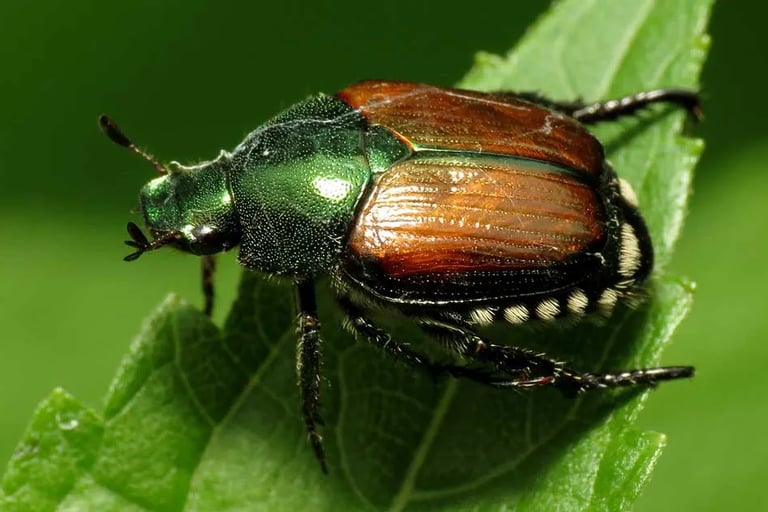

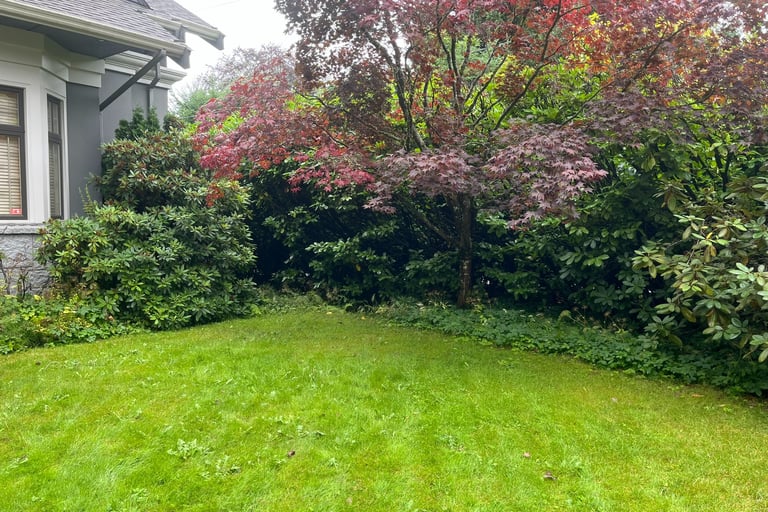

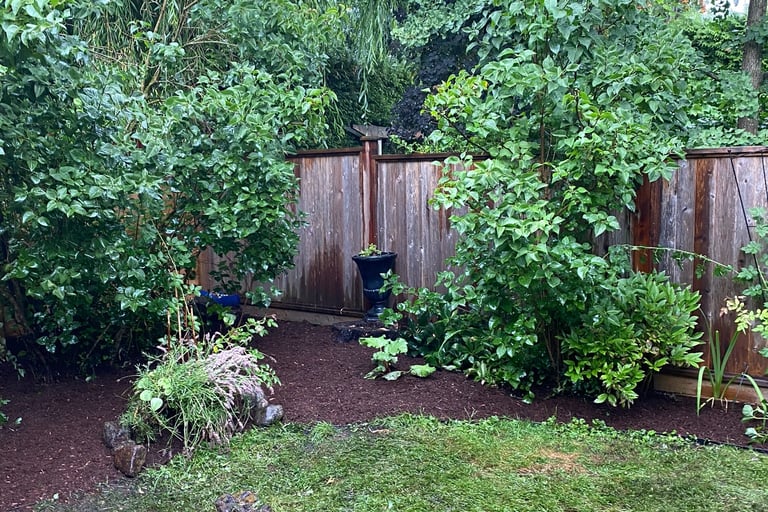

Contact
Blossomscaping@gmail.com
+1-604-339-9217
© 2024. All rights reserved.
Where we service
3158 W 34th Ave, Vancouver, BC V6N 2S2
UBC - Cambie - Dunbar - West Vancouver - North Vancouver - West Point Grey - Shaughnessey - Richmond - Kerrisdale - South Vancouver - East Vancouver - Kitsilano - Burnaby - Mount Pleasant - Oakridge - Arbutus Ridge - Marpole - Southlands - Victoria-Fraserview
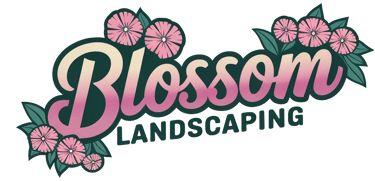

Proudly Servicing Vancouver, British Columbia
What we service
